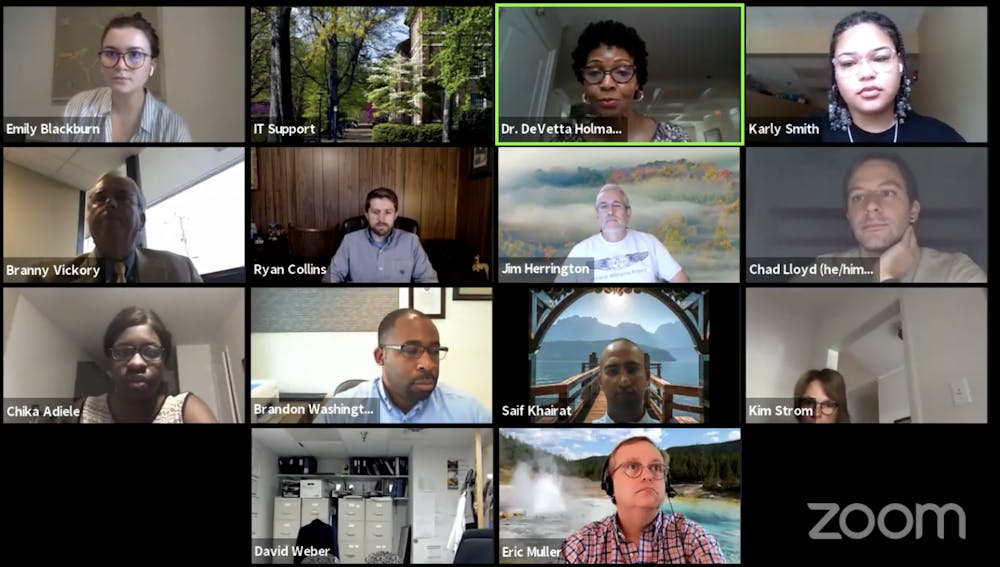Karly Smith, senior resident adviser, explained how detrimental the shift has been for students at UNC and noted the pressure Black students in particular are facing across the country.
“My work and other people’s work has been affected because of the pandemic, because of Zoom learning, because of the police brutality that we’re seeing in the nation and so much turmoil going on,” she said. “And it’s difficult for the professors to understand that.”
Student Chika Adiele agreed.
“It’s one thing to send out all these emails saying ‘I understand you,’ ‘I get you’ and ‘Let’s make all these accommodations,’” Adiele said. “It’s another thing to actually see your professor take that step to show that they care.”
COVID-19 case update
Dr. David Weber, UNC Health Care's associate chief medical officer, provided an update to the current COVID-19 situation at UNC. Weber explained how the school will continue with current safety measures on campus.
“We will continue offering widespread testing — symptomatic and asymptomatic,” Weber said.
But Weber also warned that the current system is not foolproof.
“It’s not clear which type of tests, frequency of tests and if testing itself makes it safer,” he said.
Weber explained how a negative test on one day doesn't mean an individual won't test positive in the next 14 days. Because many students are asymptomatic, the virus is harder to detect during testing, he said.
Weber also emphasized the importance of wearing masks and abiding by the Center for Disease Control guidelines.
“The caveat is that testing only works if people still use masks and, when appropriate, quarantine,” he said.
To get the day's news and headlines in your inbox each morning, sign up for our email newsletters.
Weber also explained that he’s seen minority groups disproportionately affected by COVID-19. Research shows that people in racial and ethnic minority groups are disproportionately affected by COVID-19.
Specifically, Black people in COVID-19 hot spots are twice as likely to die from the virus than white people.
He also noted the school’s responsibility to provide students with resources to prevent COVID-19 at home.
“We need to make sure we’re supporting all of our students, particularly those who are off campus as well,” Weber said.
He recommended the school focus on making sure masks, hand sanitizer, wipes and other resources are easily accessible to all students.
On-ramp forecast
While Weber did not give a clear answer about when on-ramping will begin, he did explain the concerns for on-ramping at UNC in the future. He noted that density and adherence to rules are the two most important factors to mitigating the spread of COVID-19.
Weber said it just takes one person entering a dorm for COVID-19 to spread.
"If they’re infected, then we’re going to have an outbreak, even if the other 99 students on that dorm floor are doing everything right.”
Weber also warned that winter will likely result in an increase in COVID-19 cases and that there is a particular concern for the simultaneous spread of the flu and the coronavirus.
Finally, Weber addressed the potential for a vaccine and how that would factor into a return to campus. It is unclear whether or not a proper vaccine will be released by Jan. 1, he said.
“In terms of a vaccine, it all depends in part on how good the data is about safety and efficacy,” he said. “If the president decides to release a vaccine based on just having antibodies, which he may, and short-term safety — I don’t know if many physicians would recommend it.”
The Commission will meet next on Oct. 7 from 9 a.m. to 11 a.m.
university@dailytarheel.com



